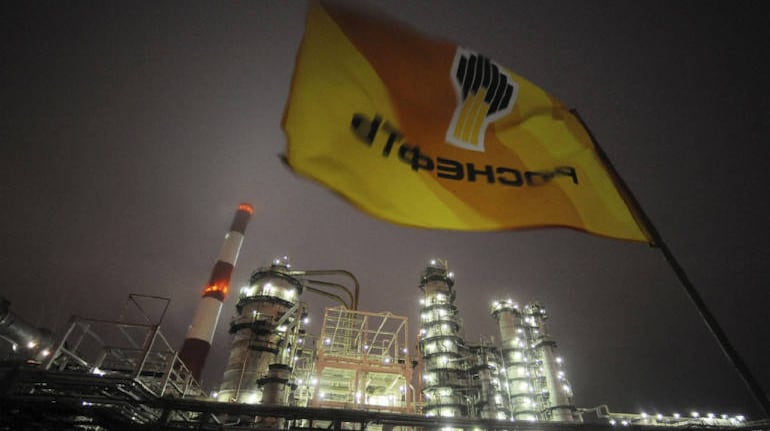



Russia's 'act of aggression' has led to yet another casualty which could have a potential fallout for world's energy security. Oil giant BP has decided to take a political stand on the Ukraine crisis, and announced that it would offload its stake worth nearly 20 per cent in Russia's oil firm Rosneft. The CEO of BP - Bernard Looney - has stepped down from the Rosneft board, along with fellow director Bob Dudley, in a quick turn of events.
According to energy and commodities columnist at Bloomberg Javier Blas, "If BP walks away with nothing, that's $25 billion non-cash loss." Pressure to exit Russia could now mount on other oil giants too. Total is one of the big shareholders in Russian gas producer Novatek while Vitol and Trafigura have pumped billions into Rosneft's project.
The uncertainty that this opens up has prompted some unease in the energy market. Brent crude prices have spiked again, inching closer to recent highs. The move by BP could potentially open a Pandora's box if other Western energy investors in Russian oil decide to follow suit. ExxonMobil and Shell, too, have stake in Russian oil assets. Already, the fallout has started: Norwegian oil company Equinor has announced that it is exiting its stake in Russian JVs, valued at over $1 billion.
BP has held the Rosneft stake for over a decade now. According to news reports, UK Business Secretary Kwasi Kwarteng had spoken to BP regarding concerns over "over-exposure to Russian interests". Soon after the announcement, Kwarteng said, "I welcome BP’s decision to exit its shareholding in Rosneft oil company. Russia’s unprovoked invasion of Ukraine must be a wake up call for British businesses with commercial interests in Putin’s Russia." BP last year acknowledged that any sanction on Russia could be problematic for its business. The big question that arises is who could potentially step up and try and own the stake being offloaded, and at what price. Rosneft is Russia's biggest state-owned oil company.
Labour MP Ed Miliband has sharpened calls for more energy players to snap business relations with Russia. He said, "Shell should now follow BP and divest their Russian holdings to isolate the Putin regime." It has a 27.5% stake in an offshore gas project of Gazprom.
Follow all the latest on the Russia-Ukraine crisis right here on Moneycontrol.
Discover the latest Business News, Sensex, and Nifty updates. Obtain Personal Finance insights, tax queries, and expert opinions on Moneycontrol or download the Moneycontrol App to stay updated!
Find the best of Al News in one place, specially curated for you every weekend.
Stay on top of the latest tech trends and biggest startup news.